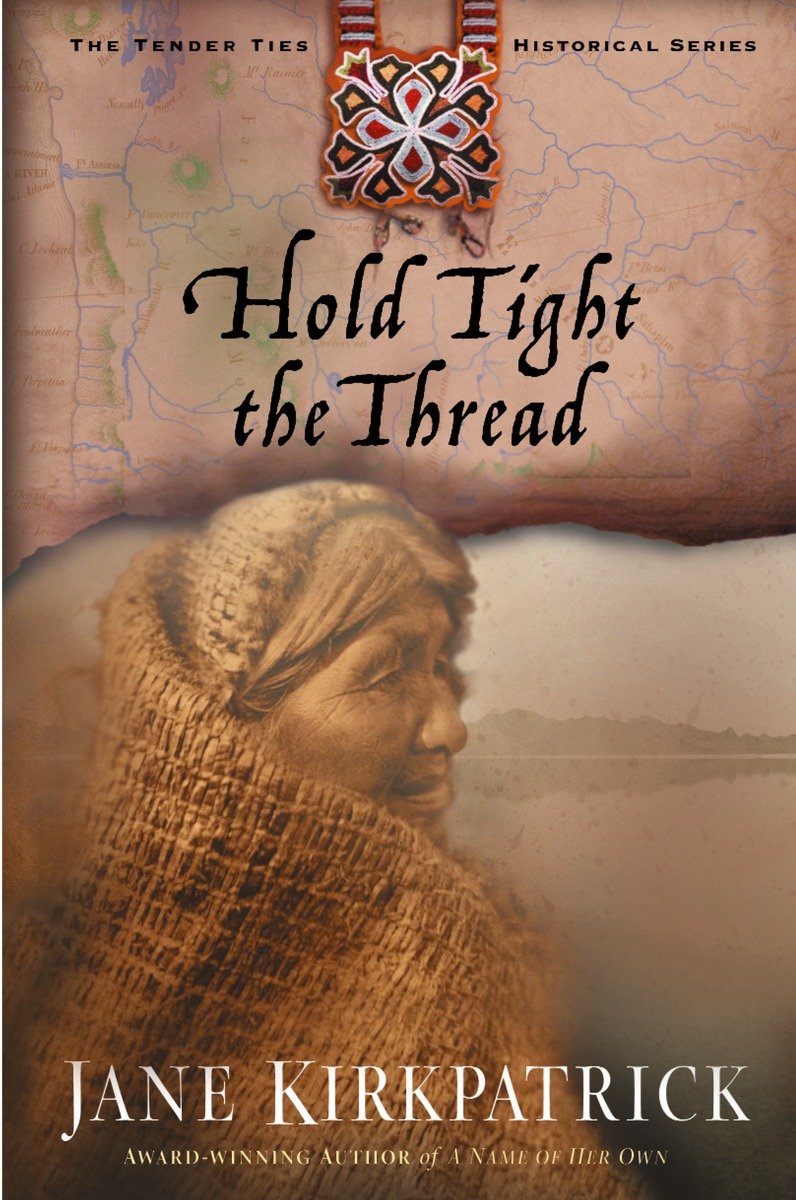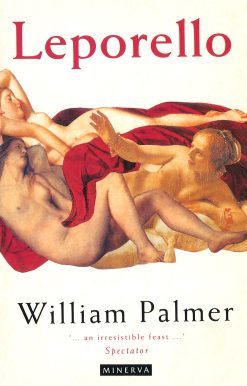Hold Tight the Thread
14.00 JOD
Please allow 2 – 5 weeks for delivery of this item
Add to Gift RegistryDescription
BASED ON A TRUE STORYIn a land occupied by foreign powers and torn by confusion and conflict, a mother seeks to weave her family and her past into a fabric that will not tear.Their Lives Were Woven by Wars and Wilderness Places, and Tied by the Peace of Family and Faith.As the 1840s bring conflict to the Pacific Northwest’s rugged Columbia Country, new challenges face Marie Dorion Venier Toupin: the wife, mother, and Ioway Indian woman who crossed the Rocky Mountains with the Astor Expedition, the first big fur trapping expedition after Lewis and Clark’s. On French Prairie in the newly forming Oregon Territory, Marie strives to meet the needs of her conflict-ridden neighbors: British settlers and Americans, missionaries and disease-stricken natives, fur trappers and French Canadian farming families, and the surviving natives of the region.At the same time, as a mother, Marie must weave together the threads of an unraveling family. One daughter compares and judges as she seeks to find her place; another reaches for elusive evidence of her mother’s love. Marie’s memories are threatened with the emergence of a figure from the past. In the midst of this turmoil, Marie discovers an empowering spiritual truth: Unconditional love can shed light on even the darkest places in the heart.
Additional information
| Weight | 2.12 kg |
|---|---|
| Dimensions | 2.65 × 13.97 × 2.91 cm |
| PubliCanadation City/Country | USA |
| Format | |
| language1 | |
| Pages | 432 |
| Publisher | |
| Year Published | 2004-4-20 |
| Imprint | |
| ISBN 10 | 1578565014 |
| About The Author | Jane Kirkpatrick is a best-selling author whose novels include the BookSense 76 Selection A Name of Her Own, Every Fixed Star, and the acclaimed Kinship and Courage series: All Together in One Place, No Eye Can See, and What Once We Loved. Jane is a winner of the Wrangler Award from the Western Heritage Center and National Cowboy Hall of Fame. She is also a Licensed Clinical Social Worker, inspirational retreat leader, and speaker. |
Praise for Books 1 and 2 in The Tender Ties Historical Series“Jane Kirkpatrick writes from a depth and richness of detailed research and from a genuine affection and respect for her characters. She gives us strong, admirable women with sensitive spirits, courage, and the capacity for unconditional love. Hold Tight the Thread is a thoughtful, skillfully prepared feast for those of us always hungry for more quality historical fiction. Like her other novels, this is a story that allows us to experience the struggles and adventures and faith of another time through characters we can learn to know–and love.” –B.J. Hoff, author of The American Anthem series and An Emerald Ballad “Hold Tight the Thread is such a satisfying ending to a wonderful trilogy on the life of such a memorable woman, Marie Dorion. I learned so much even as I felt a range of emotions —sad, happy, bittersweet, and triumphant. I love this book!” –Linda Hall, author of Steal Away and Chat Room “I highly recommend Every Fixed Star. Jane Kirkpatrick’s storytelling is deft and true; she breathes life into the long-ago Oregon country with warmth, emotion, and a deep understanding of the region’s people and past. With depth, creativity, and inspiration, Every Fixed Star provides a fresh view of this period in the Pacific Northwest’s history, showing the complicated dynamics between settlers, fur traders, missionaries, natives, and visionaries. Jane has vividly captured the history of the fur trade for intelligent women readers.” –Laurie Winn Carlson, author of Seduced by the West and On Sidesaddles to Heaven: The Women of the Rocky Mountain Mission “Jane Kirkpatrick has a rare gift, for her novels touch both the emotions and the intellect. She fills her stories with living history, each rich detail carefully researched and woven into a very particular time and place–the Columbia Country of the 1820s. And yet, Every Fixed Star is far from a dry history; rather, it is the moving, heartfelt story of one woman’s journey toward accepting her own failings as a wife and as a mother–a struggle common to every woman in every century. Through Marie’s ‘heart knowing,’ we are forced to examine our own hearts and lives and emerge the better for it. Jane’s novels are more than a ‘good read’; they are a life-altering experience." –Liz Curtis Higgs, author of Thorn in My Heart “[An] evocative, imagined retelling of the story of Marie Dorion, the remarkable Iowa Indian woman who crossed the continent with her young sons and her mixed-blood husband in 1811 as part of the first grand expedition after Lewis and Clark… As always, the historically accurate details are woven in with care, and the characters are fully imagined. At the story’ s end, the reader absolutely believes ‘Marie was an Ioway woman of the Gray Snow people; gray like the stuff that strengthened bones.’ A truly fine book.” –The Denver Post, in praise of A Name of Her Own, Book One of the Tender Ties Historical series |
|
| Excerpt From Book | Chapter OneBright Shining LightAugust 1841, French Prairie, Oregon CountryMarie let loose her daughter’s hand, then stepped behind her, gently guiding her into the darkness. “Maintenant,” she said in French. “We go now.” She placed her hands on the young woman’s cedar-caped shoulders, inhaled the wood scent of her hair. They were nearly the same height, one of the few things they shared in common–that and a worry over whether they’d be enough.“We don’t have time for this, Mother,” Marguerite protested. Butshe allowed Marie to prod her to an area of prairie grass where Mariemotioned her daughter to sit.“We need to make time for this,” Marie said. “Lie down.” She pattedthe grass.A vast darkness arched over her and her oldest daughter. The women’sheads touched, as though they were two logs reaching out from a centerpost. The air felt moist. The moon would rise late tonight. The drygrasses tickled her ankles. She should have put on leggings before convincingher oldest daughter to walk a distance from their log home tofeel the night air breathe in the dark sky. Getting Marguerite to comewith her at all had taken convincing. Dozens of tasks waited finishingbefore the big event tomorrow. “There will never be another night likethis one, not ever,” Marie told her daughter. Marie meant to savor it.She’d begun to cherish these feathers of peaceful moments floating intoher life, even when it took effort. It still took such effort to name thegood in her days. Learning new ways, she found, both stimulated andstrained her. This was a happy occasion. She refused to let worry scar it,and so she controlled her troublesome thoughts, even now, when theypushed like a bullish child elbowing his way in uninvited.“Did you see that?” Marie asked. She pointed. “That light? There’sa special prize for the one who sees the first star.”Marguerite shook her head, rubbing Marie’s hair as she did. “PapaJean’s spectacles must let you see something I can’t. It’s still just dark skyto me, Mother. Where did you see it?”“East,” Marie said. She adjusted the lenses given her as a gift by herhusband just weeks before. “Toward Hood’s Mountain. An arc of light.There’s another.”“I don’t see them. Maybe they’re coming to find us with thelanterns.” Marguerite said. “Maybe they think I’ve changed my mindand have run away.”Did her daughter warn her of worries? The man was twenty yearsher daughter’s senior. He had sons already. Maybe Marguerite wishedmore time before she committed to this man Jean Baptiste Gobin.Does a mother encourage her daughter to walk through the uncertaintyof marriage, promising her that peace will come, or does she make asafe place for a daughter to turn around, to reconsider her heart’sfuture?What was right for a mother to do? was always Marie’s question.Ripe gooseberries scented the August air. An owl hooted in the bigcedar tree in the center of the timbered section that marked the borderof their land. Prairie wolves howled in the distance, a sound distinctfrom the larger wolves that roamed in packs. Marie took in a deepbreath. There were more blessings here than dangers; that’s what shemust concentrate on, encourage her daughter to think this too. Newways took time. Her friend Sarah had told her that long years before,and Sarah was seldom wrong. Unlike Marie, who was a mother namedby her errors.She took another deep breath. She would count her blessings likethe beads of her rosary, designed, orderly, and obvious, the way thepriests said God revealed himself in the created world. Hadn’t her husbandof many years become her friend, someone with whom she preferredto spend her time? That must have been part of a grand design.Wasn’t this prairie land they’d found to live in ripe with promise, predictablewith seasons of planting and harvest? Hadn’t she found a quietway to ease the ache of a lost and troubled son, soothe the disappointmentof rarely seeing distant friends, survive the deaths of a child andtwo husbands? The landscape, her newly forming faith, and her familypromised peace. These were the life threads that she wove into a healingrobe of comfort.Memory, too, served her. It brought the conversations she’d hadwith her friend Sacagawea to mind whenever she wished. Memoryreminded her of what she had endured in her fifty summers. EvenKilakotah she called neighbor now, though to touch her fingers to herfriend’s cheeks meant a three-day ride to the horse ranch of Tom McKay.Still, the two would see each other more now, when they gathered at theparish church on the Willamette River when the priests traveled southfor Mass. And in between, she had the memories of those who brushedagainst her and changed her life forever.She had troubling memories too, but surely she deserved now atime to set those aside, cut those ties. Her friend Sacagawea would tellher to expect kindness in life. This she would do, especially tonight.After all, she was a mother whose children told her their secrets andhonored her with their questions. What mother didn’t want to beknown for her careful tongue and modest wisdom? Her husband, Jean,tolerated her many wonderings over varying views of faith of nativepeople, of Presbyterians, Catholics, and Methodists who populated thisprairie area. Perhaps he understood that her baptism was a beginning ofanother questioning journey and not one simply ending with acceptanceas it had been for him.Marie questioned. It was part of who she was.Marie blinked again. She’d seen the pinpricks sometimes even in thedaylight, when she stood too quickly or when she first awoke. Theirpresence interrupted her sleep, too, and she’d awake with a start, a gaspthat would wake her husband and stir the household trying to sleep inthe upper loft.Perhaps her eyes were learning new things even while she slept. Shehad spectacles to wear during the day, to stop the squinting that hadbeen a part of her life for as long as she could remember. Yes, that wasprobably all it was, her eyes adjusting to the dark and daylight, seeingclearly with spectacles.This piercing light tonight was likely just the first sign of the starsfilling the night sky. Nothing to be alarmed about.“Will this always be my home?” Marguerite asked then. Her voicehad changed to wistfulness.“You’ll always have a place with us, but you’ll have your own homeafter tomorrow.” Her daughter took in a sharp breath, and her breathingquickened. Marie heard discomfort in the sound. “This is yourchoice, oui? ” Marie asked. “To marry this man?”“I’m glad we moved here with Papa Jean,” Marguerite said.Hadn’t her daughter heard her? Or did she deliberately avoid?“You might not have met your JB if we hadn’t.”“There are more French Canadians here,” Marguerite said.“More people like your papa.”“There’s one,” Marguerite said, lifting her hand quickly to point.Marie felt rather than saw her daughter’s arm reach up. “In the northernsky.”“I see it too. Bon. You receive the treasure. You have the first star inyour basket,” Marie told her.“What’s my prize?”“It comes to you later.”“You made that up, Mother. There’s no ‘first prize’ for seeing the firststar of a night sky.”“You’ll see,” she said and smiled.Marie had coaxed her daughter away from the cheek bread pans,those rounded tins that resembled a baby’s bottom when the doughrose. She drew her from the chatter of Marguerite’s younger brotherand sister so she could rest a bit before taking on the role of a bride. Apeaceful moment was her daughter’s treasure. A new wife had few ofthem after the wedding, and Marie wanted her daughter to have thememory of a special evening before the days filled up with the work ofliving.Marie would have a prize too: a memory of a last quiet time withher oldest daughter alone, a moment of hanging on to a daughter beforeMarguerite became a wife.Marie thought to offer sage advice, to say something to sustain herdaughter in this time of transformation when a woman became a bride.Words failed her at times, even French words, her first language. Mariethought of her mother. What might her own mother have spoken if shehad lived to see Marie’s marriage day when, as a young girl, she hadcommitted herself to Pierre Dorion? Would she have been proud thather daughter chose a man affiliated, however briefly, with the Corps ofDiscovery? Or might she have stepped in to intervene, suggested that shewas too young to wed?No way to know. Her mother had died before Marie spoke marriagevows.Marie was pleased her daughter had waited until she was twentytwoto marry. And her youngest girl, Marianne, while fifteen, showedlittle interest in boys. A blessing. Marie touched the beads around herneck, ran her hand over the smooth metal cross that her friend Sarahhad given her. Blessings. Count the blessings.“What are you thinking about, Mother?” Marguerite asked. Thegirl had a gravelly voice, husky almost, her throat scorched perhaps fromleaning over the cook fires. Marie imagined the tiny wrinkles thatflowed like rivers toward the pools of her daughter’s dark eyes, eyes thattonight looked tired even before the wedding plans consumed her. As achild, Marguerite had been known by the French Canadians for herthick eyebrows lifting in question and by her firm lips reserving expressionfor rare occasions. Even with impending joy so close, Marguerite’sfull round face hadn’t eased often into a smile. Marie wished somethingdifferent for Marguerite.“Remembering,” Marie said. “It’s what a mother does on a daybefore her daughter weds. A bride-to-be should have stars in her basket,n’est-ce pas?”Marguerite said, “To light the darkness she finds there?”“You worry over darkness?” Marie said.“Just a rule of thumb,” Marguerite said.Marie shivered. Such a phrase. Could this JB Gobin be a man whoused the rod against his wife? Had she missed some rumor about him?Why otherwise had her daughter chosen the term rule of thumb, thelegal size of a rod allowed by a husband to strike his wife?“Does he hurt you, this Gobin? You do not need to marry him,then.” Marie sat up. Her daughter was asking for a way out.“No. No.” Marguerite answered quickly, pulled her mother back. “Ionly meant I’m just a little worried, a slender worry, the size of a rod.About…”“Do your thoughts go to someone else? to Richard?”Marguerite laughed. “That Nez Perce boy? No. He was just afriend.” Her voice sounded light, as though she coaxed a child to eat herporridge. “No.” Marguerite hesitated now. “I think of Paul,” she said.Marie felt a chill go through her. “The day before your wedding youthink of your half-brother?” Marie moved her head, felt the hair at theback of her neck bristle.“Didn’t he run away on the day Baptiste married Older Sister?”“He did.”“It was the first wedding I remember, and it ended in sadness. Papanever came back. Paul never came back. Even Baptiste left, and beforehe returned Older Sister died.”“Leave those hard thoughts behind now, Marguerite.”“They never even said good-bye to me. None of them,” Margueritesaid.“This is what you think of when you prepare to marry?” Marie said.“Non. This is not good. You were little then. You should think of otherthings. You shouldn’t think of a sad time. See, there’s another star. Thiswill be a full sky night.”“Don’t you wonder where Paul is?”Another light, as tiny as a pinprick, flashed before her eyes. Marieblinked, and the glimmer broke into flickers and disappeared. She feltno pain, but uneasiness snaked though the tiny hole as though theopening might rip into something larger that could consume her. Whenhad they started, these flickering lights, tearing at the fabric of memoryand mind? She lived in safety, surrounded by family and friends. Whydid the uneasiness pierce her now?Marie held her jaws together, made herself breathe in through hernose. “I have put my thoughts of Paul in a past place, to make room fornew joys, like my daughter’s wedding.”Marie could hear voices in the distance. Marianne’s girlish pitchespoked into her husband’s and her son’s low tones. Someone would becalling them back soon.“What do you think really happened to Paul? And to Papa?” Margueriteasked. She sat up now. “They’re linked together for me, their disappearances.”“They happened years apart,” Marie said. “Our memories tell talltales to us sometimes.”“Not for me. I wonder about the stories I should tell my childrenabout their grandfather.”“Papa Jean was more a part of your life. Tell your children of him.”Moments passed, and Marguerite sat so silent that Marie thoughtshe might have fallen asleep. Marie imagined her daughter’s long eyelashesclosed against her cheeks; she reached to touch the bone beneathher daughter’s left eye, a bone left flattened when a horse raised its headto Marguerite’s and cracked it long years before. Maybe Marguerite worriedabout injury or death, this young woman on the eve of new living.Marie was no femme sensé; she had no explanations. Her baptism weeksbefore had answered some questions but added even more.“I want to tell my children stories of Papa,” Marguerite said, herfingers clutching her mother’s now. “So they’ll know about a goodfather. He was good, n’est-ce pas? He had scars in his fingers. I rememberthat. And he sang, didn’t he?”“Oui. He loved music and he sewed with me. Even with his fingersthat would break open in icy water. Tiny stitches we used.”“Sometimes I think that Paul…”“What? What do you think?”“Nothing,” Marguerite said. She let loose her mother’s hand. “It is anever-mind thought.”For Marie, stories of Paul arrived on an arc of pain that hit newmarks each time they were spoken as words. She wanted to forget thatwound, put it away as she’d put other painful times behind her, timesthat were better tucked away as forgotten thoughts, not brought intopresent memory. “Tell your children of the good your stepfatherbrought to your life. Don’t dwell on the death of your father or thedisappearance of Paul or the death of your sister-in-law,” Marie said.“Baptiste married a woman he loved. Remember that. And he is happynow. He did come back. Not all who leave stay gone. Papa Jean livedaway for months trapping, but he always returned.”“Older Sister lost her life…giving birth,” Marguerite said. Her voicewas so low the words sounded like the hum of bees.Marie put her arm around her daughter. “You’re worried over childbirth?”Why hadn’t she thought of that? Of course. What kind of motherwas she not to know a daughter would be concerned over such things?“To have something and then lose it,” Marguerite whispered. “Itmight be better not to have it at all.”“Look around this French Prairie. See how many children run hereand there. Babies are a natural thing. You’ll see. This is an orderly worldcreated for us. A peaceful world. Baptiste loved again. I loved again, aftertwo husband’s deaths. Our hearts are large enough to love more thanonce, to fill the empty places of those who leave or are even sent away.”“Are they?”Had Marie gifted her daughter with a mind that always worriedrather than one that reveled? Was that the legacy she would leave thischild on the eve of her wedding night? Not one of hopeful joy but of theweave of worry?“This match frightens you because JB was wedded before,” Mariesaid. “I understand this now.”“Non,” Marguerite said. Too quickly. “It is not the marriage thatfrightens.” Marie imagined Marguerite’s obsidian eyes piercing the darkness,could almost see her daughter smooth her hair back, the lovelywidow’s peak marking the center of her high forehead. “It’s the unansweredquestions that trouble me. We need to go inside. We have breadto bake while the night is cool.”This was not the conversation Marie wanted to have with herdaughter. She wanted to tell her of the joys of companionship, aboutlight shed upon a marriage journey that moves two people back andforth across the bridge of separate and together. She wanted to tell hernot to stay as unbending as her mother had. “I loved your father. Theuncertainties of his death still haunt me, but I can find no answers whenI search there.”“It is hard to move to a new place in my life while old questions stillhold a claim. What about Paul? Is his disappearance related to–”“Don’t wait as long as I did to cherish good gifts, daughter,” Mariesaid. “Desire met is more than longing for past pleasures. Desireattained is as sweet as molasses. Think about such sweetness instead ofall that might be unfinished in a life.”Marguerite moved to stand into the darkness.What could Marie say that would be supportive, encouraging, kind?“You can change your mind,” Marie said. As her daughter reached to pullher up, Marie grunted with the effort. She held Marguerite’s wide palm,squeezed her long, slender fingers. “Even now. At this moment. Thoughthe banns have been read, you can still decide to wait. JB will wait. Theguests will understand. What you wish is what matters most.”Am I saying the right thing? Am I suggesting caution where it needn’t be?“It’s just…there, see that one? Oh, it has a tail as it falls through thesky. A falling etoile.” Marguerite sighed, and Marie knew that a momentof opportunity had passed, that she hadn’t comforted her daughter.She hadn’t given her the gift of peace the day before her marriage. Theyhadn’t even had words Marguerite might someday wish to tell herdaughter on her marriage day. She couldn’t say, “My mother told methis wise thing the day before I married your Papa, and now I tell it toyou.” Her daughter was apparently as good as her mother at slippinggood things into worries and intended affection into distraction. It wasnot the legacy Marie had hoped to give her daughter.“Come, Mother.” Marguerite squeezed Marie’s hand now. “I have agarland still to weave for my hair. We’ve lain around enough.” Sheslipped her hand from her mother’s and walked on ahead, alone. |
| series |
Only logged in customers who have purchased this product may leave a review.






Reviews
There are no reviews yet.